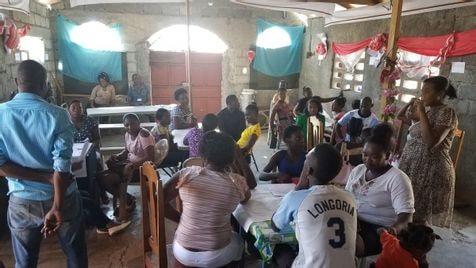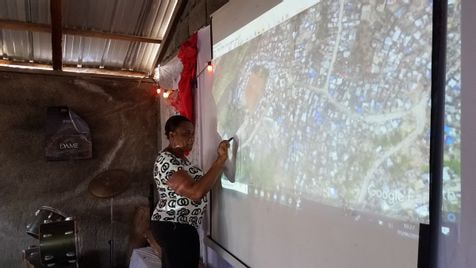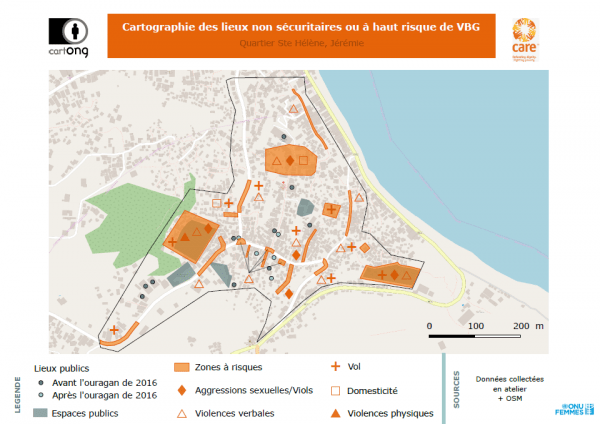
Participatory Mapping and gender-based violence
About
Description
CartONG supported CARE’s team in Jeremie, Haiti, as part of the “Vil nou pi si pou fanm yo” (“Our city is safer for women”) project, an initiative funded by UN Women to identify and map unsafe or high-risk places for gender-based violence in 7 neighborhoods of the city of Jeremie, using a co-construction approach with youth and women living in these districts.
CartONG’s role was to provide support in participatory mapping, first as part of a two-week field mission in Haiti, and then as part of a post-mission remote support to CARE’s team in Jérémie. During the field mission, CartONG trained 13 members of CARE Haiti’s team in the use of uMap, a tool developed by OpenStreetMap, for conducting participatory mapping workshops. In addition, CartONG and six CARE Haiti’s community mobilizers organized four participatory workshops in Sainte-Hélène, with 25 inhabitants and community associations present. Workshop participants were able to accurately locate the places where violence occurs and propose solutions to resolve this issue. During these first 4 workshops, CartONG’s role consisted in supporting CARE’s team in the logistical and operational implementation, but above all in ensuring that the participatory mapping methodology was well-assimilated so it could be easily replicated.


After the mission, CARE Jérémie’s teams continued the workshops in the other 6 target districts of the project by replicating the methodology proposed by CartONG, with the support of our remote team. In addition, CartONG also produced paper maps, which were more suitable for conducting the awareness sessions. The 6 paper maps produced represented the high-risk areas as well as the types of violence encountered by the inhabitants. These maps were also accompanied by a summary document of the solutions formulated by the participants during the workshops.
The maps produced as part of this project were intended to be used as awareness-raising tools for Jeremie’s security and justice stakeholders, as well as on a larger scale, for all the city’s youth and women’s communities. In addition, these cartographic products also helped guide the type of gender-sensitive urban development actions to be implemented within the framework of the “Urbayiti Vil Nou Pi Bel” project, financed by the European Union and the French Development Agency (AFD).

